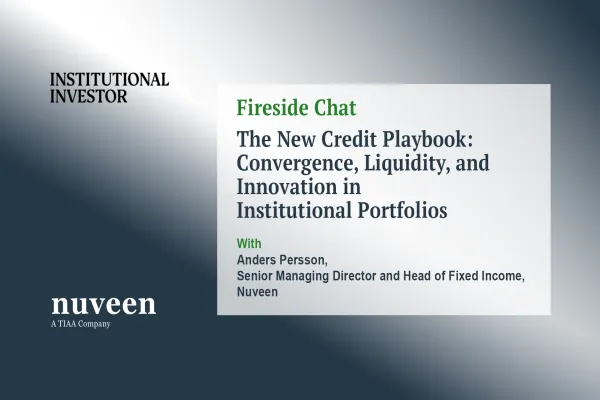Outsourced chief investment officer clients are struggling to outperform benchmarks, even as an increasing number of institutions are embracing the model.
“They had a pretty tough quarter, at least on average,” said Brad Alford, founder of Alpha Capital Management. His search consulting firm has partnered with Nasdaq to aggregate data for the Alpha Nasdaq OCIO Index, which released quarterly returns late Monday.
The news comes as the asset allocation industry is experiencing a sort of upheaval. Industry insiders say they’ve seen an uptick in OCIO searches, while in-house allocators at institutions like Inova Health System, Mercy health system, and Children's Hospitals Minnesota have been laid off or furloughed.
The results from the OCIO index show that for the one-, three-, five-, and ten-year periods ending March 31, the AlphaNasdaq OCIO broad market index underperformed a 60/40 portfolio made up of the Standard & Poor's 500 stock index and the Bloomberg Barclays US Aggregate bond index.
The Alpha Nasdaq OCIO indexes include results from twenty OCIO firms with nearly 700 client portfolios under management. In addition to reporting broad market performance, the indexes are broken up based on institution type and risk profile.
The data show that endowment and foundation OCIO clients have lost 6.43 percent on average for the one-year period. Over the ten-year period, these clients have returned 5.66 percent. Compared with the 60/40 benchmark, the endowment and foundation index underperformed over the one-year-period and just barely beat the ten-year period index.
“A 60/40 portfolio has only two asset classes, but the portfolios managed by OCIOs have more than that,” said Valter Viola, managing director at investment consulting firm Cortex Applied Research. “So they better outperform those simple indexes for a variety of reasons.”
Meanwhile, defined benefit pension plan OCIO clients, which tend to take on less risk, returned 0.07 percent on average for the one-year period, and 7.14 percent for the ten-year period. This index outperformed the 60/40 benchmark.
“I don’t know if the defined benefit OCIOs get credit for the outstanding returns, or if their liability-driven investments get it,” Alford said by phone Tuesday.
One reason the performance at some institutions are faltering? “Most OCIO funds have strict rebalancing processes,” Viola said by phone Tuesday.
He added that some OCIO firms are required to rebalance assets once per month to ensure that they’re hitting asset allocation targets. But when certain securities do well, they take up a bigger piece of the allocation pie. If that gets too big, OCIO firms have to sell.
“They’re selling the winners and buying the losers,” Viola said. The good news, though, according to Viola, is that some OCIO firms can rebalance daily. “It's a little bit more trading than they otherwise would do, but it can pay off,” he said.
[II Deep Dive: Allocators Believed Their Jobs Were Safe From Covid Cuts. They’re Not.]
Even as OCIO clients underperform benchmarks, industry insiders share that anecdotally, the number of institutions considering OCIO services is on the rise.
“There are more people who want to do OCIO, especially in the endowment and foundation space,” Alford said, noting that his firm’s search volume is “through the roof.”
He added that some early adopters of the OCIO model have seen fees for the service come down, which in turn has made them want to reconsider their provider.
Meanwhile, some institutions that put off their OCIO search plans as they managed through the early days of the pandemic have started looking at the service again, according to OCIO consultant Dennis Sugino, founder of Kansa Advisory.
“If you sort of think about everyone’s lives during March and April, people were thinking about different things than OCIO searches,” he said by phone Tuesday. “There has probably been pent-up demand.”







